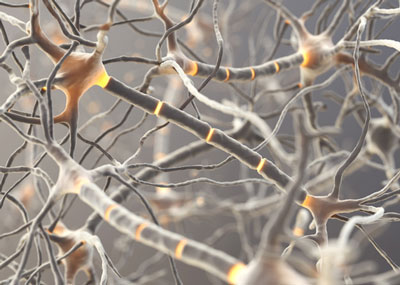Nerve growth factor triggers functional cell growth in Alzheimer’s disease
Posted: 28 August 2015 | Victoria White
Degenerating neurons in patients with Alzheimer’s disease measurably responded to a gene therapy in which nerve growth factor was injected into their brains…


Degenerating neurons in patients with Alzheimer’s disease (AD) measurably responded to an experimental gene therapy in which nerve growth factor was injected into their brains, report researchers at University of California, San Diego.
The affected neurons displayed heightened growth, axonal sprouting and activation of functional markers, said Mark H. Tuszynski, MD, PhD, professor in the Department of Neurosciences.
The findings are derived from postmortem analyses of 10 patients who participated in Phase I clinical trials launched in 2001 to assess whether injected nerve growth factor – a protein essential to cellular growth, maintenance and survival – might safely slow or prevent neuronal degeneration in patients with AD.
Administering nerve growth factor directly into the brain – a first for treating of an adult neurodegenerative disorder – was done for two reasons. The nerve growth factor protein is too large pass through the blood-brain barrier, making it impossible to inject elsewhere. And freely circulating nerve growth factor causes adverse effects, such as pain and weight loss. By precisely injecting nerve growth factor into targeted regions of the brain, researchers could introduce the protein only to surrounding degenerating neurons.
Results merit continued testing of nerve growth factor as a potential treatment
The gene therapy approach has since progressed to phase II trials at multiple test sites. Results have not yet been released. The published findings come from AD patients who participated in safety trials from March 2001 to October 2012 at UC San Diego Medical Centre. The participants lived one to 10 years after treatment.
“All of the Alzheimer’s disease brains showed anatomical evidence of a growth response to the growth factor,” said Tuszynski, who has been principal investigator for the trials from the beginning. “This means that growth factors as a class consistently result in activation of dying cells in human neurodegenerative disorders.”
Tuszynski said the findings indicate nerve growth factor is safe over extended periods and that it merits continued testing as a potential AD treatment. Currently, there is no effective treatment or cure for AD.
The study findings are publishing in JAMA Neurology.
Related topics
Gene Testing, Gene Therapy
Related conditions
Alzheimer’s disease
Related organisations
UC San Diego








